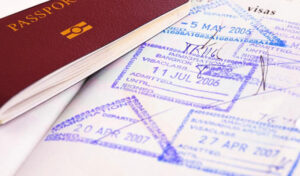If you are a foreign national with assets in Thailand it is crucial to make a legal Thai Will. This will ensure that your property is distributed according to your wishes.
Succession is the process by which a deceased person’s properties, including rights and duties, are passed to their successors. The law allows a maximum of six classes of successors, including the surviving spouse and descendants.
A Will is a legal document that outlines your end of life wishes
While it is not pleasant to think about, writing your end of life wishes in a Will allows you to state your preferences clearly. Often, this document is called a Living Will, but some states have different names for these documents (like directive to physicians or advance health care directive).
A will also outlines how you want your possessions to be distributed after your death and designates guardians for minor children. It also states your burial or cremation instructions, and it lets you name an executor who will carry out your wishes.
Make sure to have all these documents in place before you need them. This will help your family avoid conflict and heartache when you die. It is also a good idea to update these documents regularly. You should review them at pivotal moments in your life, like marriage or having a child.
It outlines your wishes regarding the disposal of your property after death
Unlike some countries that have forced inheritance laws, Thailand allows for property to be allocated according to the wishes of the deceased. However, this can only be done if the deceased has a valid will and complies with Thai law. This is why it is important to consult a lawyer familiar with the laws regarding wills and estate planning.
Succession is the process of transferring assets to heirs, devisees, or legatees after a person’s death. A will is considered a document that describes a testator’s assets and specifies their distribution. It must also include a statement that it is the testator’s last will and testament.
A Will made by a foreigner in Thailand must comply with the provisions of Sections 1655-1672 of the Civil and Commercial Code. It must be written, dated, and signed by the testator in front of two witnesses who are aware that it is his or her will. It may also have a limited jurisdiction clause, limiting its effect to assets located in Thailand.
It outlines your wishes regarding the distribution of your assets
A Will allows you to stipulate how your assets should be distributed after your death. This will help minimise legal issues and expenses for your heirs. In addition, a Will will ensure that your wishes are respected. It is important to keep your asset documentation up-to-date to ensure that your estate complies with Thai law. This includes property deeds, bank statements, investment portfolios, and other valuables.
In Thailand, inheritance is based on a set of rules that are dictated by the Civil and Commercial Code. Typically, the spouse takes half of the common property and the rest goes to statutory heirs, including full blood brothers and sisters, grandparents, aunts and uncles.
When making a Will, it is recommended that you have at least two witnesses present to verify the signatures. This will prevent fraud and disputes over the authenticity of the document. It is also a good idea to review and update your Will on a regular basis to reflect changes in your personal circumstances.
It outlines your wishes regarding the inheritance of your children
If a person dies without a Will in Thailand, the law decides who will inherit his or her estate. This is called dying “intestate.” The law lists six types of heirs: direct descendents; parents; brothers and sisters of full blood; grandparents; and uncles and aunts. In addition, the surviving spouse of a legally registered marriage qualifies as a statutory heir.
A Will lets you choose heirs and clearly outlines your last wishes. It also makes settling succession easier and quicker. Typically, it will require the help of a lawyer who can prepare the legal documents and submit them to the court.
To be valid, a Will must be in writing and signed by the testator (person making the will) in the presence of witnesses. The testator must also be mentally competent to make a Will. If the document contains provisions that are against public order or good morals, it may be void. A witness to a Will cannot be a beneficiary or executor of the will.
Related posts:










